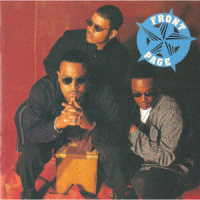- ホーム
- > 洋書
- > 英文書
- > Computer / Languages
Full Description
Late Objects Version: C++ How to Program, 7/e is ideal for Introduction to Programming (CS1) and other more intermediate courses covering programming in C++. Also appropriate as a supplement for upper-level courses where the instructor uses a book as a reference for the C++ language.
This best-selling comprehensive text is aimed at readers with little or no programming experience. It teaches programming by presenting the concepts in the context of full working programs and takes a late objects approach. The authors emphasize achieving program clarity through structured and object-oriented programming, software reuse and component-oriented software construction. The Seventh Edition encourages students to connect computers to the community, using the Internet to solve problems and make a difference in our world. All content has been carefully fine-tuned in response to a team of distinguished academic and industry reviewers.
The Late Objects Version delays coverage of class development until Chapter 9, presenting control statements, functions, arrays and pointers in a non-object-oriented, procedural programming context.
Contents
1. Introduction to Computers, the Internet and the World Wide Web
2. Introduction to C++ Programming
3. Control Statements: Part 1
4. Control Statements: Part 2
5. Functions and an Introduction to Recursion
6. Arrays and Vectors
7. Pointers
8. Sequential-Access Files
9. Classes
10. Classes: A Deeper Look
11. Operator Overloading
12. Object-Oriented Programming: Inheritance
13. Object-Oriented Programming: Polymorphism
14. Templates
15. Stream Input/Output
16. Exception Handling
17. Random-Access Files
18. Class String and String Stream Processing
19. Searching and Sorting
20. Data Structures
21. Standard Template Library (STL)
Appendix A. Operator Precedence and Associativity
Appendix B. ASCII Character Set
Appendix C. Fundamental Types
Index
Chapters 22—27 and Appendices D—I are PDF documents posted online at the book's Companion Website (located at www.pearsonhighered.com/deitel).
Chapters on the Web
22. Bits, Characters, C Strings and structs
23. Boost Libraries, Technical Report 1 and C++0x
24. Other Topics
25. ATM Case Study, Part 1: Object-Oriented Design with the UML
26. ATM Case Study, Part 2: Implementing an Object-Oriented Design
27. Game Programming with Ogre
Appendices on the Web
D. Number Systems
E. Preprocessor
F. C Legacy Code Topics
G. UML 2: Additional Diagram Types
H. Using the Visual Studio Debugger
I. Using the GNU C++ Debugger





